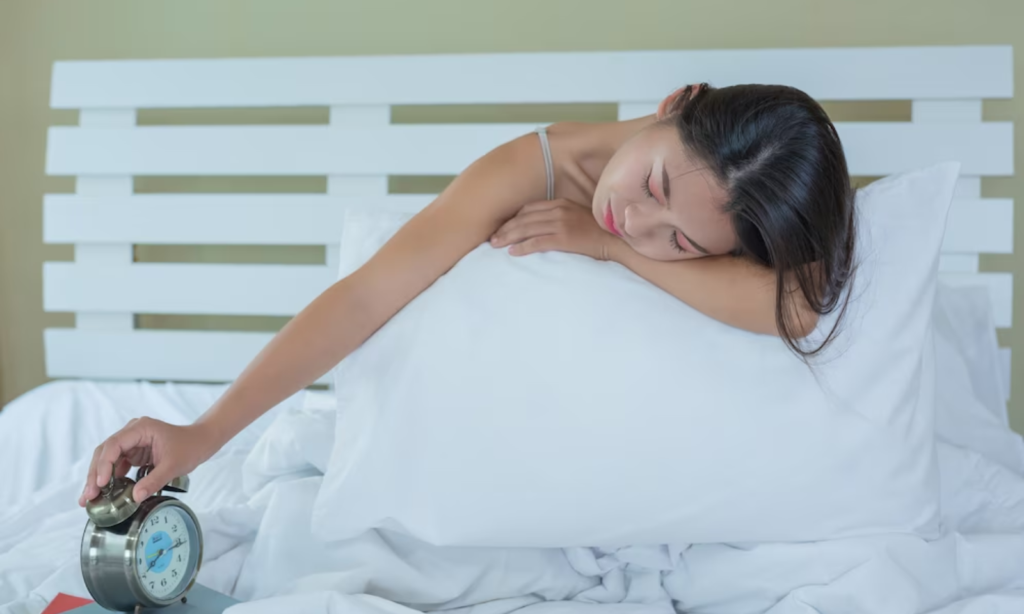When you wake up early and are exhausted, it negatively affects the rest of your day. Why do you feel this way? Although you don’t often ask yourself out loud, this thought constantly lingers in the back of your mind. Feeling weak or dizzy when you first wake up is pretty typical.
It typically disappears for people who drink caffeine, take showers, or eat a hearty breakfast. But if this persists and follows you all day, it’s time to give it some thought.
Before we delve any further, let’s look at the causes behind the weariness you experience while waking up.
1. Sleep Inertia
Your morning fatigue may be caused by sleep inertia, a specific aspect of waking up.
Our brain usually does not wake up as soon as the rest of the body, and it gradually returns to its awakened state. This is typically when people fall back asleep after waking up, and you can always blame a nice soft mattress for that.
On the other hand, sleep inertia is not present if you wake up unexpectedly after the first few hours of falling asleep. Sleep drunkenness is the term for that phenomenon. When you don’t get enough sleep, wake up in the middle of a deep sleep, or set an unusual alarm, you are more likely to experience both.
There are ways to limit its effects. You can try and get a full night’s sleep on the best mattress you can find, keep your naps to 30 minutes or less, and drink caffeine after waking up.
2. Blue Light
Getting blue light on yourself before bed can be problematic because it boosts your alertness and mood and snatches away your sleep. They are artificial lights emitting blue wavelengths, from energy-efficient lights to phone or electronic screens.
These lights can suppress the secretion of melatonin, the hormone which helps the body’s circadian rhythm, also known as the sleep-wake cycle.
It ultimately leads to difficulty in sleep hence your morning tiredness. We can prevent blue light effects by avoiding screens before sleeping, using dim red lights, having bright light exposure during the day, and using blue light filters on our electronic devices.
3. Sleep Environment
Your sleeping environment has a big impact on how well you sleep and how you wake up the next day. The mattress is one of the key components of the bedroom. We all believe we have the best mattress, but this isn’t always the case.
If you have trouble sleeping, replace your mattress with a better one.
If you are looking for the best mattress near me, you will come across the Livpure mattress.
Research has shown that a medium-firm mattress is the best kind. Luckily for you, considering the price of the mattress, Livpure mattresses live up to the mark. You can find Livpure mattress online, which is the mattress at the best price.
To solve the mattress problem, replace your mattress if it’s over 9 or 10 years old, get yourself the Livpure best mattress with cool gel technology and a breathable outer cover, and give yourself the Livpure sleep.
4. Bedroom Temperature
Your sleeping room’s temperature can affect your sleep in many ways. Being too hot or cold can make it hard for you to sleep.
This can be helped by wearing appropriate sleepwear according to the temperature and using an orthopaedic memory foam mattress with a cooling cover and breathable foam.
Depending on your bed size, you can get a Livpure mattress – king-size or a queen-size mattress or a Livpure single-size mattress. It won’t affect your financial capabilities because the Livpure mattress price is always reasonable.
5. Unwanted Noises
Even the sound of a television or radio or other ambient noises can make some people drowsy. Even so, it significantly affects how well you sleep.
Always remember that your sleep will become deeper each night with less noise outside. You’ll also observe that you don’t wake up frequently in between periods of sleep.
You can try using earplugs while you sleep to address this issue, using a modern sound machine and, to be even more traditional, closing the doors and windows in your bedroom.
6. Food Habits
The state in which you wake up can be significantly impacted by what you eat before bed. Caffeine consumption makes it difficult to fall asleep and stay asleep and increases the number of night-time bathroom visits because it greatly increases the body’s alertness.
To avoid this, keep a check on your caffeine intake by not consuming caffeine at least 7 hours before bed, putting a limit on caffeine servings and checking certain medications for caffeine content in it.
Even the consumption of alcohol has severe effects on your sleep. The sedative effect caused by alcohol will put you to sleep, but the quality of the rest will be inferior and will increase the number of times you wake up and deplete the depth of your sleep.
7. Sleep Disorders
If none of the solutions is helping you, you need to see a doctor and get a medical diagnosis. You could face movement disorders like restless legs syndrome, periodic limb movement disorder, or bruxism.
Sleep apnea can also be a significant cause affecting your sleep, causing problems such as snoring, gasping for air, constant tiredness, trouble maintaining sleep, dry mouth when waking up and morning headaches.
Insomnia leads to difficulty falling asleep and waking up. Getting up in the morning for someone with Insomnia will lead to difficulty in concentration, irritability, depression and anxiety due to insufficient sleep.
The End Line
The feeling of waking up tired can be helped by bringing in a few changes in sleeping habits and reducing caffeine or alcohol intake. And if nothing is having any effect, then it is time for a doctor’s visit.
Whatever the case, it’s important to give yourself a boost and get your sleep for physical and mental comfort. Good luck getting some good sleep!
